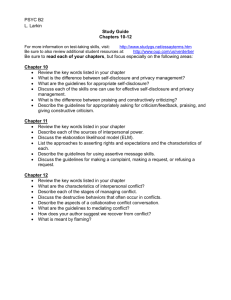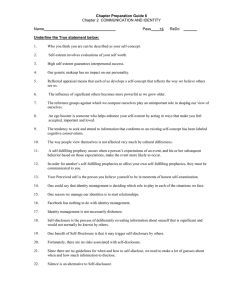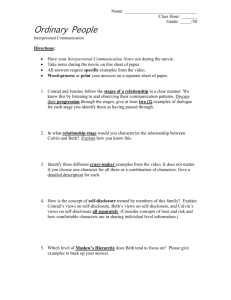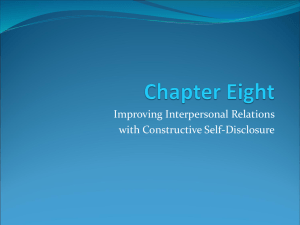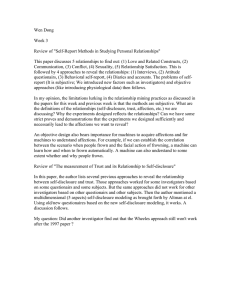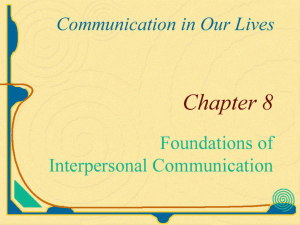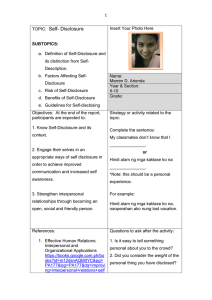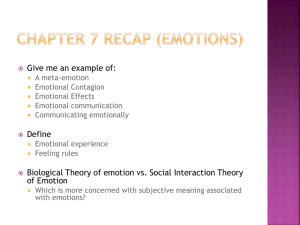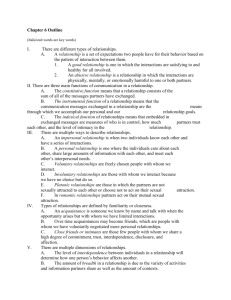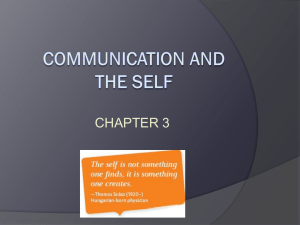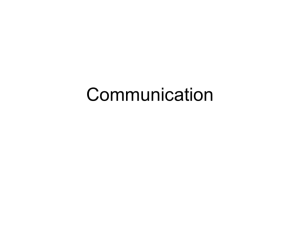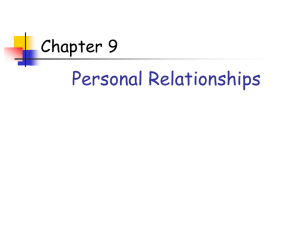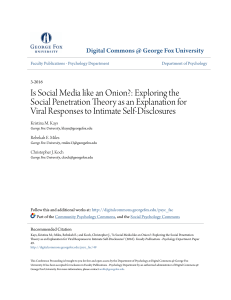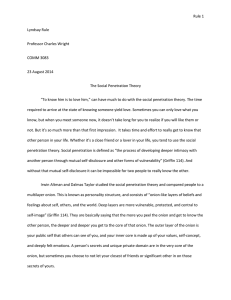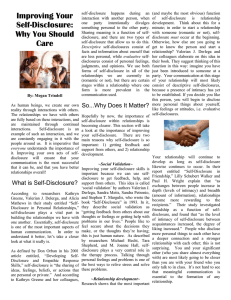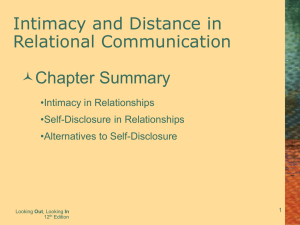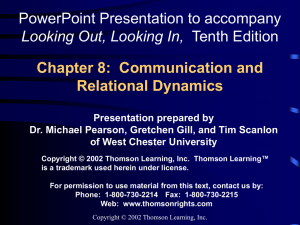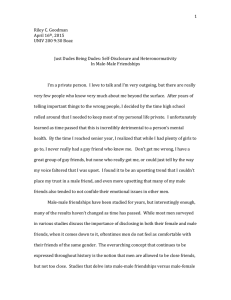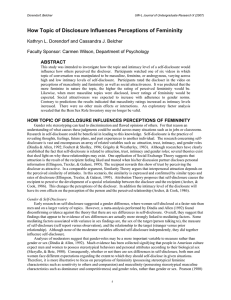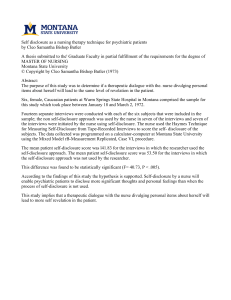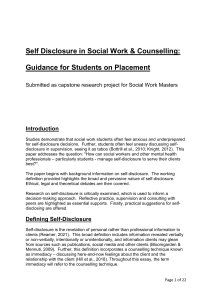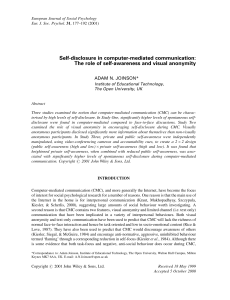COM110 Week 2 The Self in Human Communication
advertisement
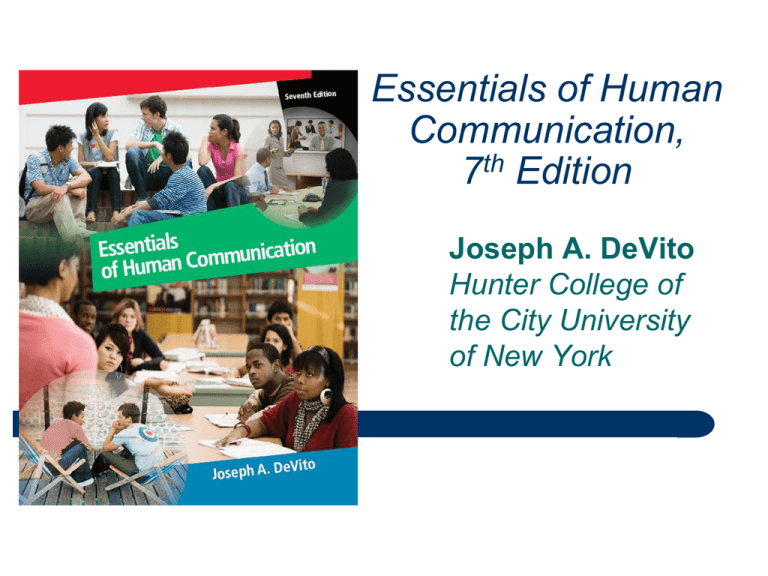
Essentials of Human Communication, 7th Edition Joseph A. DeVito Hunter College of the City University of New York Chapter Two: Lecture One: The Self in Human Communication This multimedia product and its contents are protected under copyright law. The following are prohibited by law: -any public performance or display, including transmission of any image over a network; - preparation of any derivative work, including the extraction, in whole or in part, of any images; - any rental, lease, or lending of the program. Chapter Two Goals Define “self-concept” Define “self-awareness” Define “self-esteem” Discover the process of self-disclosure Learn the nature and workings of perception The Self in Human Communication Sources of Self Concept Other people’s images of you Social comparison Cultural teachings Self-interpretations and self- evaluations Self-awareness Who am I? Basic to all communication and is achieved when you examine several aspects of yourself as they might appear to others as well as to you. Johari window Your Four Selves Growing in Self Awareness Listening to others Increasing your open self Seek information about self Dialogue with yourself Self-Esteem Attack self-destructive beliefs Seek out nourishing people Work on projects that will result in success Remind yourself of your successes Secure affirmation Self-Disclosure A type of communication in which you reveal information about yourself Factors Influencing Self Disclosure Who you are Your culture Your gender Your listeners Your topic and channel Rewards of Self-Disclosure Better self-knowledge Stronger coping abilities Improved communication Meaningful relationships Dangers of Self-Disclosure Personal risks Relationship risks Professional risks Your Rights in Self-Disclosure Resist pressure to self-disclose if you are uncomfortable. Do not be pushed into disclosing. Be indirect and move to other topics. Be assertive in protecting yourself. Guidelines for Making Self-Disclosures Things to consider: The motivation The appropriateness The disclosures of the other person The possible burdens self-disclosure might entail Guidelines for Facilitating and Responding to Others’ Disclosures Support and reinforce the discloser Be willing to reciprocate Keep the disclosures confidential Don’t use the disclosures against the person
